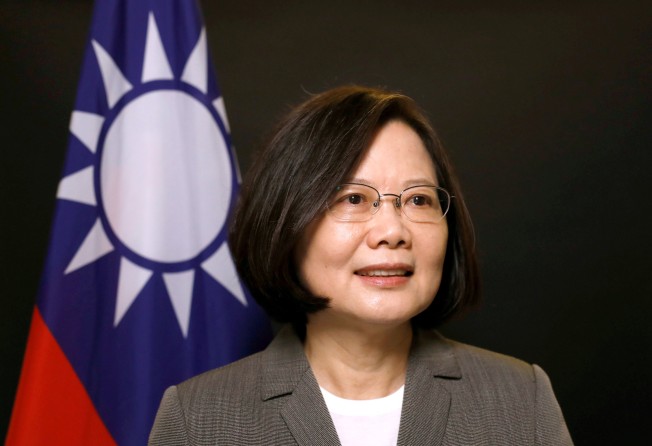People power — not politicians — put Taiwan on path to democracy, island’s president says
Tsai Ing-wen plays down role by late KMT leader as Taiwan marks 30th anniversary of end of martial law

Taiwan’s president marked the 30th anniversary of the lifting of martial law on Saturday by crediting the public rather than late leader Chiang Ching-kuo for putting the island on the path to democracy.
The comments prompted the opposition Kuomintang to hit back, saying Chiang’s role in the process was undeniable.
In a Facebook post, President Tsai Ing-wen said many nameless people – from truck drivers, to dissidents, teachers, factory workers and owners of small businesses – were behind the struggle to remove martial law.
“For a long time, some people have been in the habit of crediting former president Chiang Ching-kuo for Taiwan’s democratisation, but I would say … [the credit] should go to the Taiwanese public,” Tsai said.
Tsai’s independence-leaning Democratic Progressive Party also called for the younger generation to have a “correct perception of history”, saying the removal of the martial law was “neither an act of grace nor wisdom” by the governing authority at that time.
On July 15, 1987, Chiang announced the lifting of martial law, which had been in place on the island since May, 1949, seven months before the KMT forces led by his father, Chiang Kai-shek, were defeated by the Communists and fled to Taiwan.
The martial law period is associated with the so-called white terror, when many political dissidents, including communists and supporters of Taiwanese independence, were either jailed or executed.
But the KMT, now in opposition, insisted on Saturday that Chiang Ching-kuo was a central player in the shift to democracy on the island.
“Former president Chiang laid the foundation for freedom and democracy in Taiwan by lifting martial law in 1987, which was followed by the removal of bans on the founding of new political parties and new newspapers,” the KMT said.
It said the changes spurred the formation of many new political groups and expanded freedom of speech in Taiwan, paving the way for several peaceful transfers of power.
“The DPP government has tried to use the anniversary to manipulate public feeling towards the old authoritarian regime in a bid to make political gains,” the KMT said.
It also accused the DPP of pursuing a political witch hunt against the KMT.
The DPP has previously blamed Chiang Kai-shek for a massacre in 1947 in which thousands of Taiwanese were killed by KMT troops sent to suppress an uprising on the island.
Some KMT lawmakers and local news outlets have said that since Tsai became president in May last year, the DPP government has sought to not only minimise the island’s historical links with the mainland, but also to eradicate the legacies of both Chiangs.